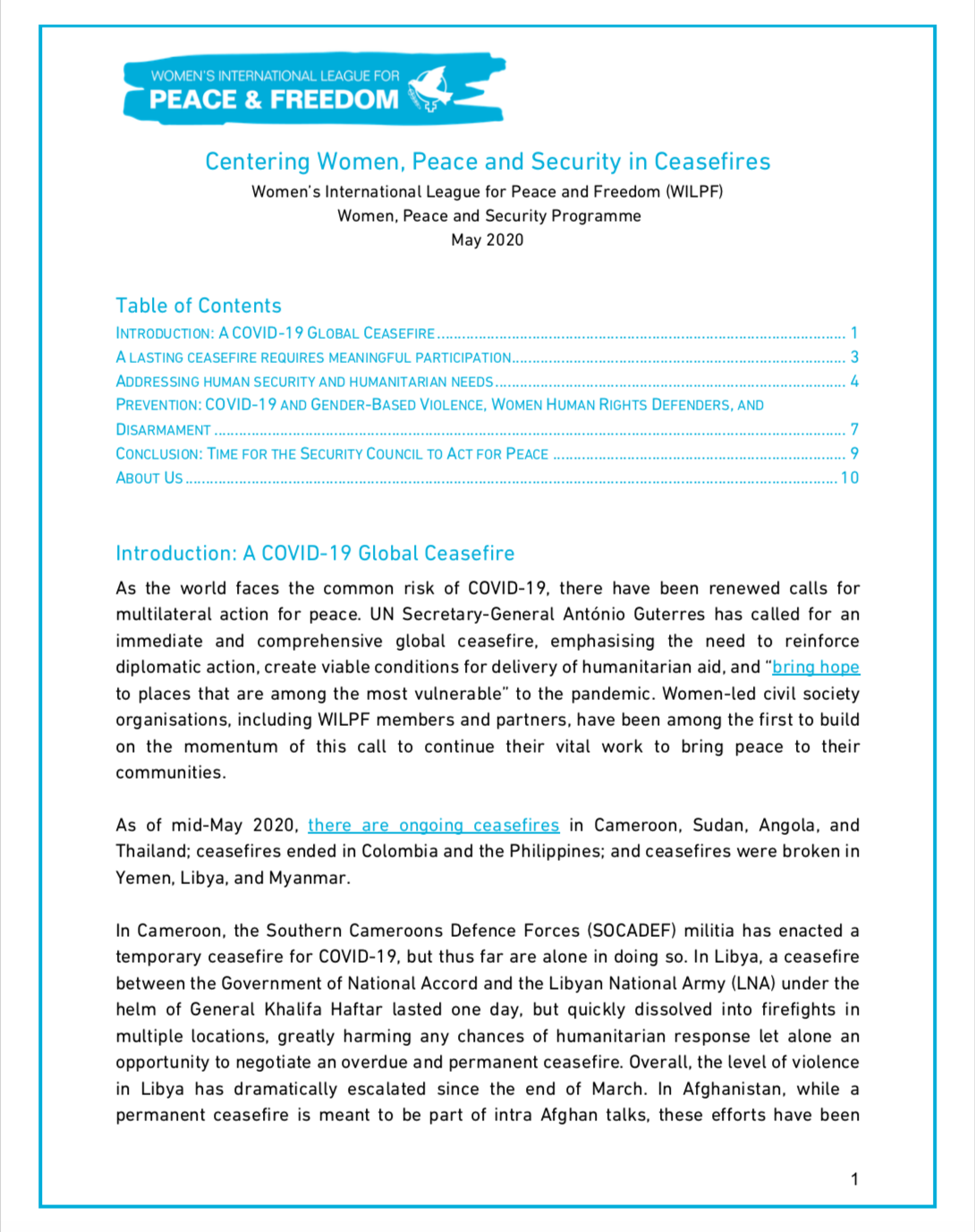New Resource: Centering Women, Peace and Security in Ceasefires
May 2020
Read our new resource, "Centering Women, Peace and Security in Ceasefires".
As the world faces the common risk of COVID-19, there have been renewed calls for multilateral action for peace. UN Secretary-General António Guterres has called for an immediate and comprehensive global ceasefire, emphasising the need to reinforce diplomatic action, create viable conditions for delivery of humanitarian aid, and “bring hope to places that are among the most vulnerable” to the pandemic. Women-led civil society organisations, including WILPF members and partners, have been among the first to build on the momentum of this call to continue their vital work to bring peace to their communities.
As of mid-May 2020, there are ongoing ceasefires in Cameroon, Sudan, Angola, and Thailand; ceasefires ended in Colombia and the Philippines; and ceasefires were broken in Yemen, Libya, and Myanmar. More than 60 member states have mobilised in support for the global ceasefire. However, stalled and ineffective multilateral action in the United Nations Security Council has meant that the call for a global ceasefire has not received the necessary support it should have for these ceasefires to be brokered and then translated into lasting peace. Warring parties have continued fighting during the pandemic, and in certain contexts, have even escalated violence.
Our new resource, “Centering Women, Peace and Security in Ceasefires”, contains an urgent reminder that UNSC action on COVID-19, including any work it does to promote a global ceasefire, must be linked with its existing recognition of the gendered impacts of conflict, the importance and agency of women in promoting peace, and center inclusivity and human security. The resource highlights case studies from Cameroon, Colombia, the Democratic Republic of the Congo, Syria, and Yemen in the current COVID-19 context, drawing from the recommendations of WILPF members and partners on the ground.
Read "Centering Women, Peace and Security in Ceasefires" here.

